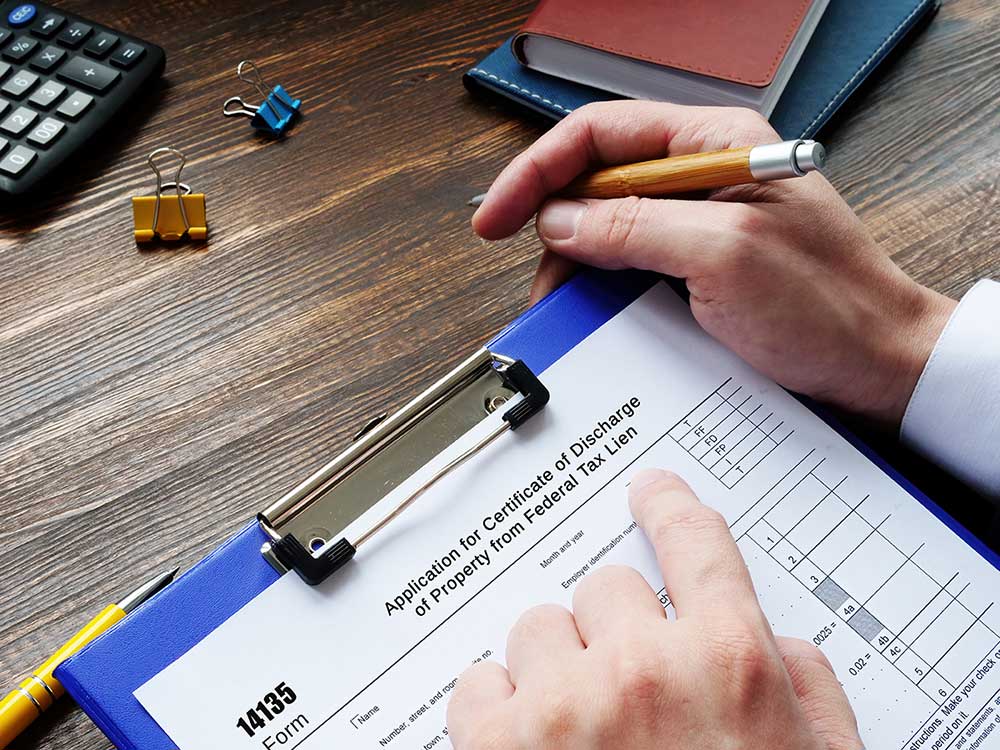Getting the IRS to Withdraw A Federal Tax Lien
If you have a Federal Tax Lien on your property, the best case scenario is to have the IRS withdraw the lien. Withdrawal not only removes the lien but also eliminates any trace of the lien on your credit report. It’s as if the lien had never been filed.
If you have a Federal Tax Lien on your property, the best case scenario is to have the IRS withdraw the lien. Withdrawal not only removes the lien but also eliminates any trace of the lien on your credit report. It’s as if the lien had never been filed.
Unfortunately, only select situations will qualify for Federal Tax Lien Withdrawal. A tax lien may be removed for any one of four general reasons:
- The Notice of Federal Tax Lien was filed prematurely or was not filed in accordance with the law or IRS procedures.
- The taxpayer has an installment agreement with the IRS, and the agreement doesn’t provide that a Notice of Federal Tax Lien was to be filed.
- The taxpayer has a Direct Debit Installment Agreement.
- Withdrawal of the lien will facilitate collection of the tax.
- Withdrawal of the lien is in the best interest of the taxpayer and the government.
We discuss each example in turn:
The IRS Didn’t Follow Proper Procedure
Three things need to happen before the IRS can issue a Notice of Federal Tax Lien:
- The IRS must assess a tax liability again the taxpayer.
- The IRS must demand payment from the taxpayer within 60 days of the assessment.
- The taxpayer does not pay the tax liability within 10 days of the first two steps being completed.
The process leading up to a Federal Tax Lien can be stopped at any of these three steps. Also, after a Notice of Federal Tax Lien is filed, the IRS will withdraw the Notice if convinced that it failed to follow these steps or otherwise didn’t comply with the law.
Installment Agreement
If a taxpayer has entered into an installment agreement with the IRS, and the installment agreement doesn’t provide that a Notice of Federal Tax Lien will be filed, the Notice is improper and should be withdrawn by the IRS.
Direct Debit Installment Agreement
The IRS will not issue a Notice of Federal Tax Lien, or will withdraw a Notice that has already been filed, when the taxpayer enters into a Direct Debit Installment Agreement (“DDIA”). Like a standard installment agreement, a DDIA requires you to make monthly payments toward your tax debt. But payments on a DDIA aren’t made by check.
Withdrawal Will Facilitate Collection
The IRS will withdraw a Notice of Federal Tax Lien if withdrawal will facilitate the IRS’s ability to collect tax. For instance, if a taxpayer doesn’t have significant assets and the IRS can be convinced that the lien is likely to hurt the taxpayer’s employment, then the IRS may be willing to withdraw the lien. IRS employees have a lot of discretion when it comes to withdrawal of a Notice of Federal Tax Lien.
Best Interest Withdrawal
A Notice of Federal Tax Lien can be withdrawn by the IRS if it is in the best interests of the taxpayer and the United States for the lien to be withdrawn. Whether withdrawal of a Notice is in the taxpayer’s best interest is determined by the National Taxpayer Advocate, who will generally take the taxpayer’s word that withdrawal is in their best interest. IRS employees have considerable discretion when determining whether withdrawal is in the best interest of the U.S. For example, a lien may be withdrawn if the taxpayer’s professional license is threatened by the lien or if the taxpayer’s business is threatened by the lien. Among other things, the IRS will consider whether there are claims subordinate to the IRS’s claim that would jump in line in front of the IRS and whether the taxpayer is likely to sell the property or file for bankruptcy after the lien is withdrawn.
Conclusion
Unfortunately, an ill-worded request for withdrawal will likely fail and may hurt your chances of securing lien withdrawal later on. Use competent tax counsel if a Federal Tax Lien is hurting your credit and you believe that you may qualify for withdrawal.
Of course, if you have additional questions or concerns, Contact Our Experts immediately.
Keep Reading! Our next areticle on Tax Controversies covers How To Get A Lien Discharged




